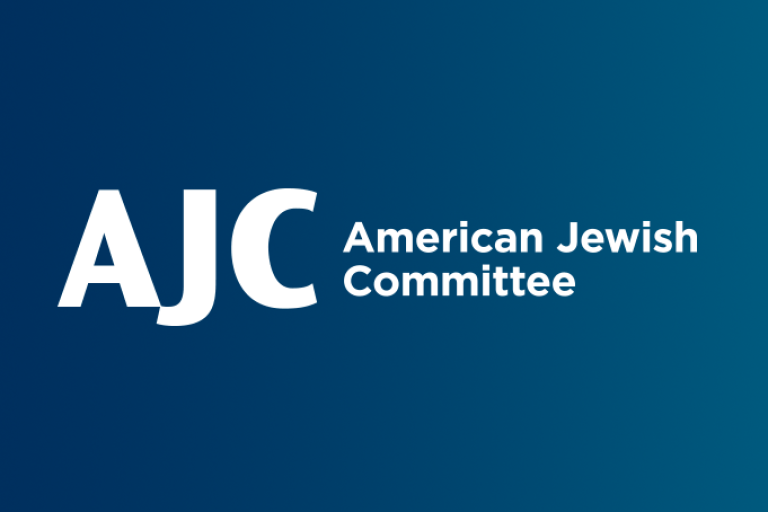June 4, 2018
By Elliott Abrams
This essay originally appeared in the 2018 AJC publication Twenty-Five Essays about the Current State of Israeli-American Jewish Relations
Most American Jews have the idealized (and inaccurate) idea that their community has been Israel’s greatest bulwark of support. In truth, American Jewry as a whole was neither deeply interested in nor powerfully supportive of Israel until the state, facing the prospect of military destruction in 1967, managed to pull off an astonishing Israeli victory. Even today, the percentage of American Jews who have visited Israel is far lower than that of other Anglosphere Jewish communities – England, Australia, and Canada. And while Jews in those communities tend to support or oppose political parties based on their policies toward Israel, American Jews on the whole do not.
The issues that pose the greatest challenge to strong American Jewish-Israeli ties are not the oft-cited left/right matters such as settlements or access to the Kotel. While such issues are important, they largely reflect the fact that Israel has by now been governed for 17 consecutive years by right-of-center governments, while America has not—and American Jews are mostly left of center. It’s not coincidental that the lowest points in bilateral relations in recent decades came when the United States had a left-of-center president whom most American Jews admired, Barack Obama, while Israel had a Likud government under Benjamin Netanyahu. If a different political constellation of parties were to form an Israeli coalition government and adopt different policies, or be more successful at explaining its approach to American Jews, some of the intermittent tension would be reduced.
But just a bit. The greater challenge is indifference—the kind of indifference reflected in the fact that roughly 60% of American Jews have never once visited Israel—and that’s even counting the well over four hundred thousand sent there by Birthright.
That indifference demonstrated by so many American Jews is often not the product of deep political opposition to some Israeli policy, but rather of disaffiliation from the community and assimilation into the 98 percent of American society that is not Jewish. The intermarriage rate for non-Orthodox Jews is now above 70 percent, and most children in intermarriages where there is no conversion to Judaism are not raised as Jews. The Pew polling center has had to invent a new category to describe the many Americans who have thus disaffiliated from the religion of their forbears: “Jews of no religion.” And the children of such individuals are most often “non-Jews of no religion” or sometimes, quite simply, Christians.
Why, after all, would we expect an individual with two Jewish parents who has out-married, not sought the conversion of his or her spouse, does not belong to a synagogue, and is not raising his or her children as Jews, to be concerned about “sustaining strong American Jewish-Israeli ties?” Similarly, why would we expect the child of such a marriage, raised without any Jewish education or experiences by parents who practice no religion and do not view themselves as part of the Jewish community, to care about such ties? Yet it is such individuals, “Jews of no religion” and persons of mixed Jewish and Christian descent raised with no Jewish religious or community ties, who are increasingly showing up on the surveys.
Israel cannot fix this problem by changing its “right-wing” policies, nor can any steps taken to bolster official ties between Israel and America. In other words, it is not an Israeli-American problem, but an American Jewish problem. Over the next five years it is unlikely to change much, and it may grow somewhat as these social trends continue.
To be sure, travel to Israel is an excellent idea, and Birthright is a blessing and should be expanded. A reverse Birthright that lets more young Israelis spend time in the United States—instead of the usual post-army trek to Nepal or Thailand—would also be a good idea. But the deeper question is how the American Jewish community can arrest the ominous trends that will reduce its size in every succeeding decade. Beyond the key but ineffable ingredient of faith, the answer appears to be education – specifically, Jewish day schools This is a factor that plays a critical part in sustaining Jewish continuity in the other Anglosphere Jewish communities: it is reported that “More than 60 percent of British Jewish children attend Jewish schools, where Israel is a central feature of their education,” and “Some 70% of Jewish children in Australia attend a Jewish day school at some point in their school lives.” In the United States, day school attendance is far lower – estimated at 25%. While the American day school pupils come almost entirely from Orthodox homes, the numbers for other Anglosphere countries make it clear that such schools in these communities also service many non-Orthodox families—the part of the community most susceptible to assimilation, which are not exposed to the benefits of full-day Jewish schooling in the United States.
One reason for the discrepancy is that Jewish schools receive government aid in Australia, England, and most of Canada—but not in the United States. Perhaps more American Jewish youngsters would attend Jewish schools—and be taught about Israel—for at least some part of their K-12 education if it were free, as public school is, or at least were not extraordinarily expensive. But the American Jewish community has often been in the forefront of opposing aid to religious schools. It is hard to argue that this is done to protect religious freedom, as if there were none in Canada, England, and Australia. And thus one critical step that American Jews might take to enhance ties with Israel, individually and collectively through their many influential organizations, is to reverse their position on aid to non-public schools. Stop opposing, start supporting; let the aid follow the child. Indeed, let the aid follow the children to Jewish schools where they will learn solidarity with other Jews and with Israel.
Feeling a close and unbreakable tie to Israel is not the product of magic, but of visits there and learning about the country’s history, challenges, achievements, and role in Judaism, Jewish history, and Jewish life in the contemporary world. We can surely do better at arranging for that.
Elliott Abrams is Senior Fellow for Middle Eastern Studies at the Council on Foreign Relations. A former Assistant Secretary of State in the Reagan administration and Deputy National Security Advisor in the George W. Bush administration, he is the author of Faith or Fear: How Jews Can Survive in a Christian America.





